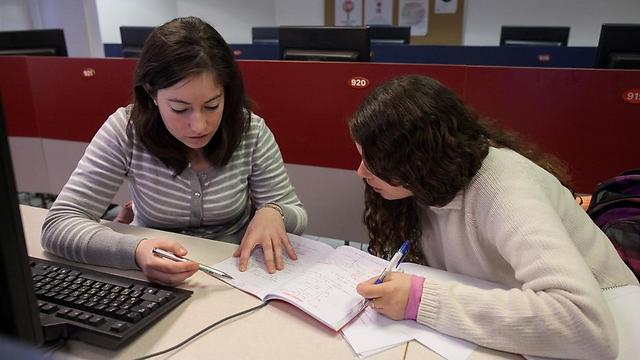
The data indicates that women in Israel marry at a later age compared to a decade ago (25.1 compared to 24.5 in 2004) and also give birth at a later age: The average age of women who gave birth to their first child increased from 26.5 in 2004 to 27.5 in 2014.
At the end of 2014, there were 3,042,900 women in Israel aged 15 and over. Life expectancy in Israel in 2014 was 80.3 years for men and 84.1 for women. The life expectancy of men did not change compared to 2013, while women's life expectancy rose by 0.2 years.
Among employed women, 67.6 percent worked full time (usually 35 hours or more per week) and 32.4 percent worked part time (usually less than 35 hours per week). Ninety percent of employed women said they were satisfied with their work (compared to 85 percent of men), while 41 percent said they were "very satisfied."
In 2014, the average monthly income of a female employee was NIS 7,439, while the average monthly income of a male employee was NIS 11,114. The average monthly income gap between the sexes was 133.1 percent, but the median monthly income gap narrowed to 27.9 percent. The average monthly income of a self-employed woman was NIS 6,847 (eight percent less than that of a female employee), while the average monthly income of a self-employed man was NIS 12,454 (10.8 percent more than male employees).
Matriculation rates are higher among girls than among boys: in 2014, the rate of matriculation certificate recipients among high school seniors was 68 percent of girls compared to 55 percent among boys. In the 2014/15 school year, there were 311,800 students in higher education in Israel, of which 181,000 were women (58.1 percent). In the 1969/70 school year, the women were less than half of the students (43.3 percent). The fields of study which found the highest rates of women were the paramedical fields (82.7 percent) and education/teacher training (80.6 percent).
More women than men were injured as either pedestrians or passengers of vehicles in road accidents: in 2014, 55 percent of pedestrians who were injured and 56 percent of passengers in vehicles hit were women. However, less women than men were injured as motorcycle riders (six percent), cyclists (10 percent), vehicle drivers (35 percent) and motorcycle passengers (38 percent).
A good place in the OECD
Women’s employment rate does not surpass that of men in any of the OECD countries. In this category, Israel ranked 15th out of 34, with a female employment rate of 65.05 percent, compared to male employment rate of 72.26 percent (The data refers to the third quarter of 2015, among employees aged 15 to 64).This is a higher employment rate than the OECD average, which stands at 61.84 percent for women and 73.57 percent for men. Iceland is in first place with 81.62 percent for women and 87.90 percent for men. Israel has seen a steady increase in female employment rate since the first quarter of 2007, when the employment rate stood at 53.87 percent.
The unemployment rate among women in Israel is among the lowest in the OECD - in the 10th place from the end. Only 5.27 percent of women in Israel are unemployed as of the third quarter of 2015, while 17.5 percent of men are unemployed. The average unemployment rate in the OECD among women stands at 8.29 percent and 7.77 percent for men. First place in the unemployment rate for women (29.15 percent) and men (21.55 percent) is Greece.
Women's life expectancy in Israel is among the highest in the OECD (at seventh place), and currently stands at 83.9 years for women and 80.3 years for men. Japan is at first place with 86.6 for women and 80.2 for men.

















